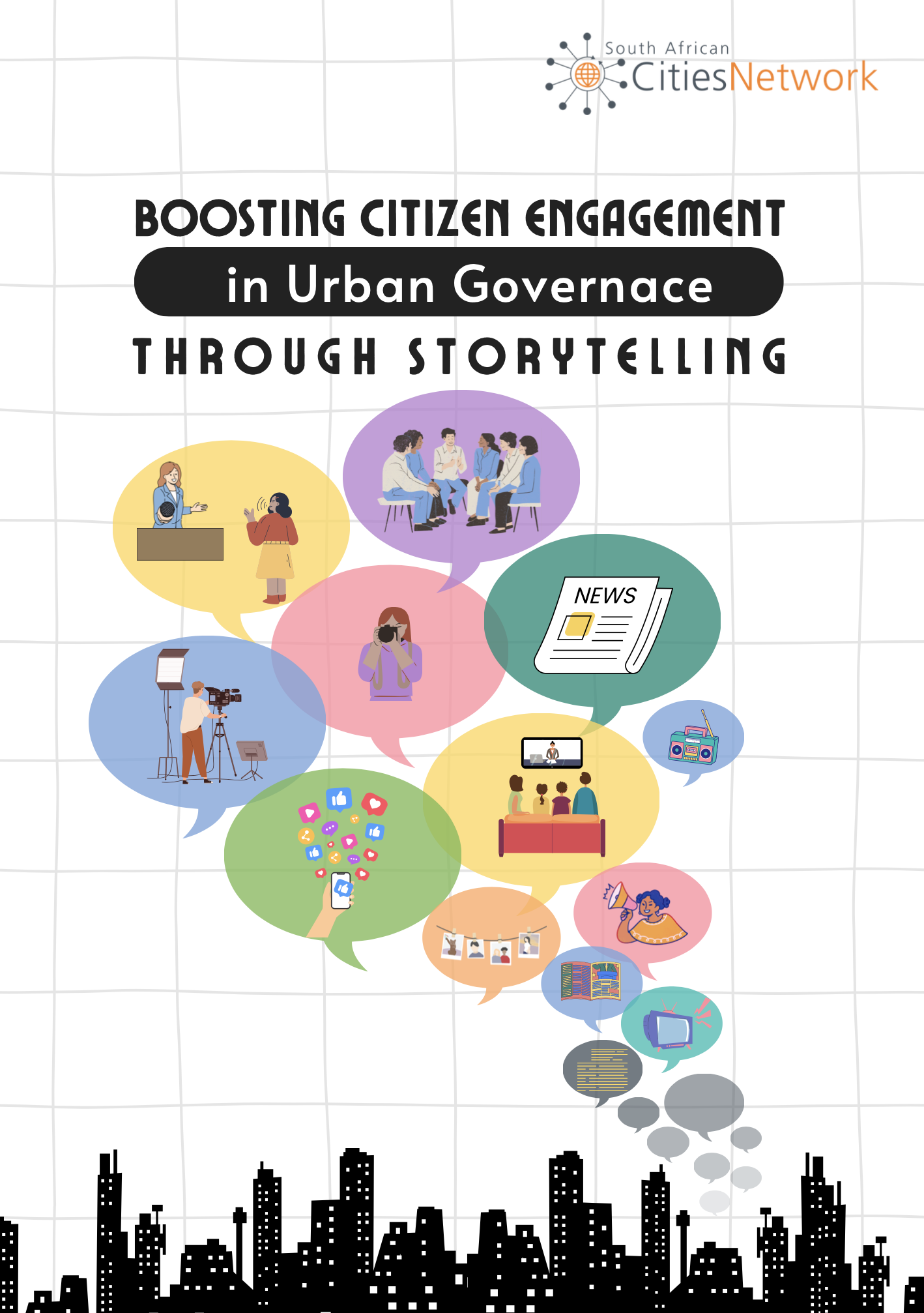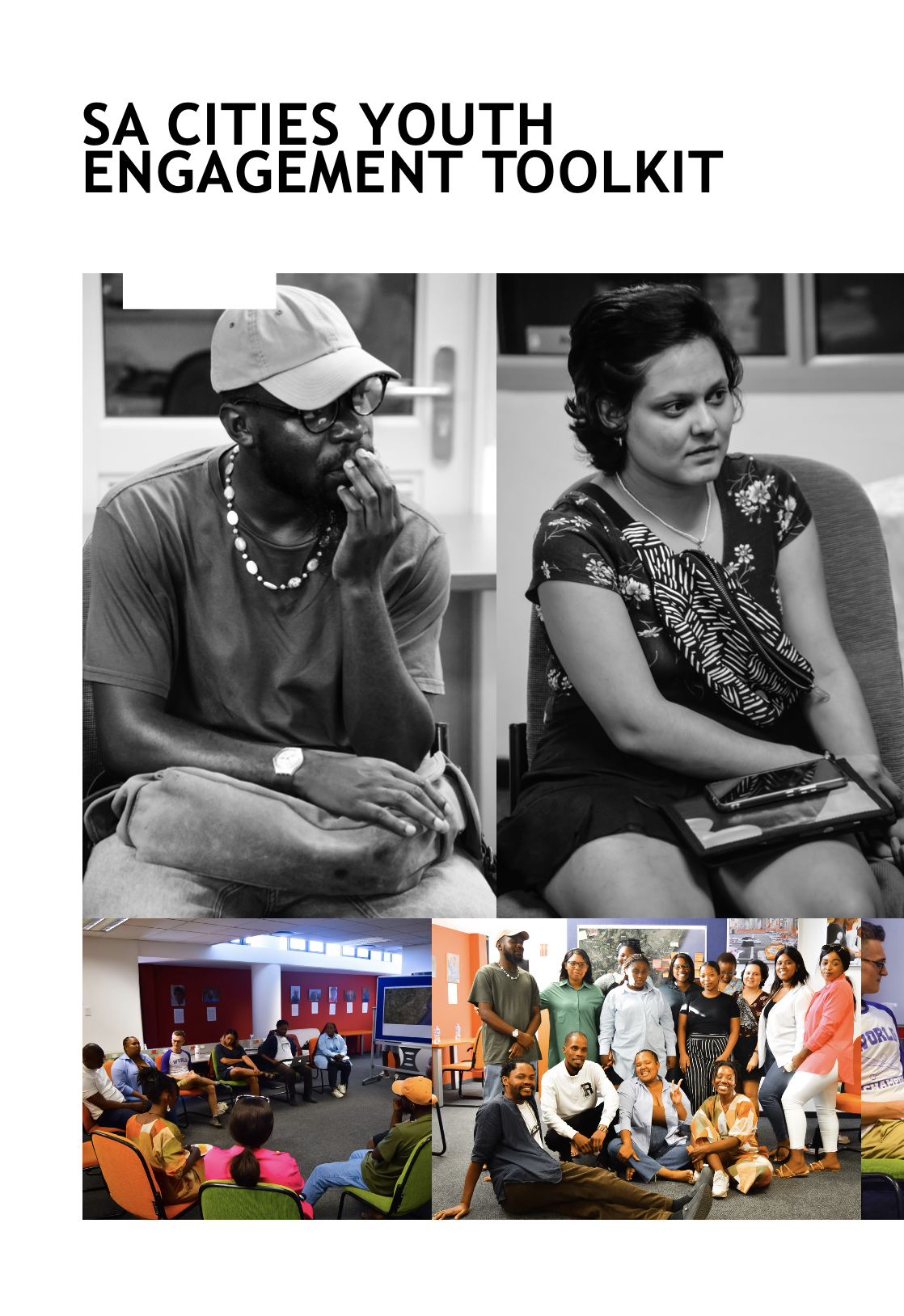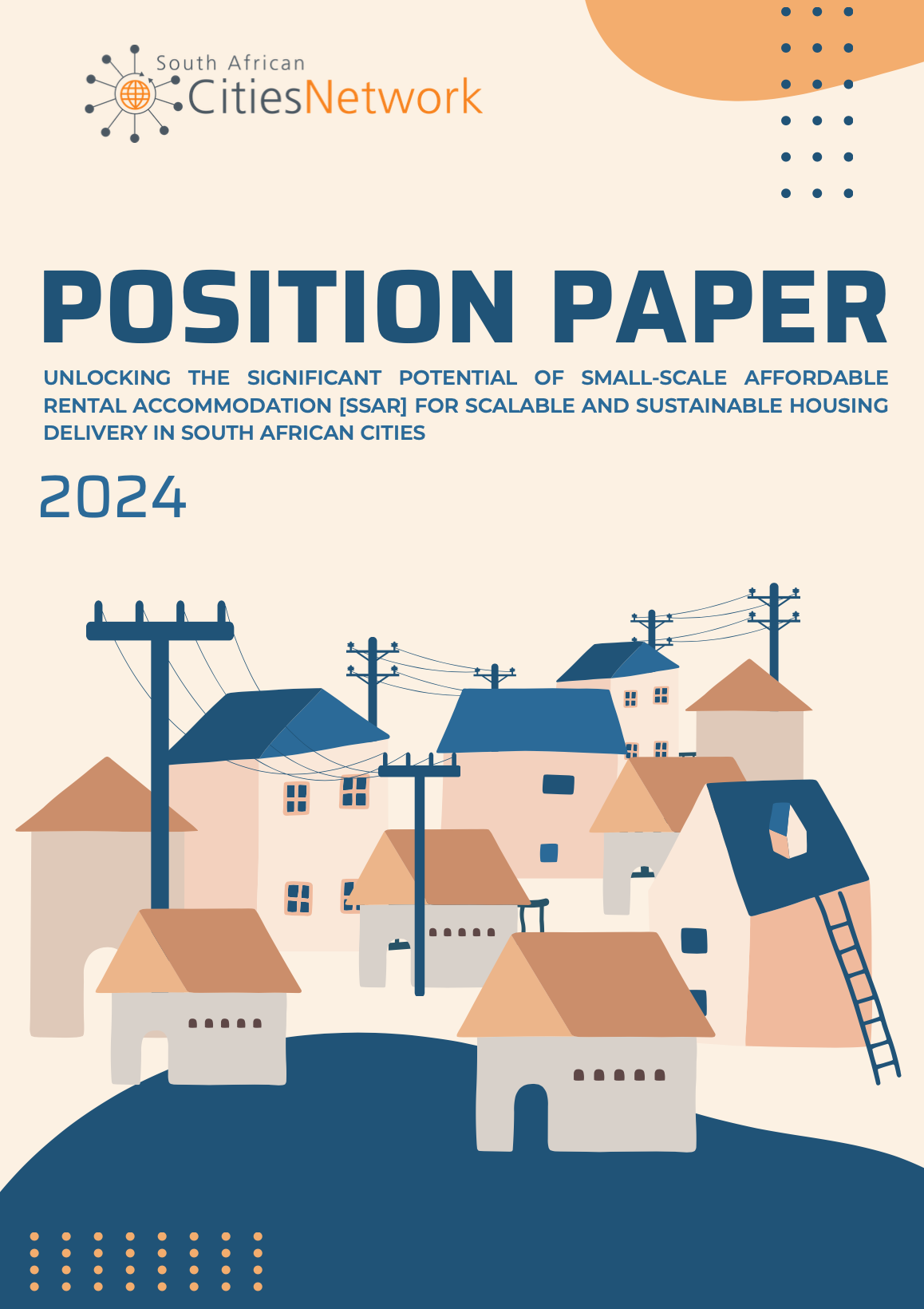Publications
- Results: 190

Impact Report: Innovation Competition on Youth-led GBV Prevention in Public Spaces
The South African Cities Network (SACN), under the banner of its Urban Safety Reference Group (USRG) platform, conducted a competition focused on gender-based violence (GBV) prevention, featuring six teams from across South Africa. The


Tracing a Journey: The City and Citizens Co-creating the Hammanskraal CBD Safety Paln
The South African Cities Network (SACN) promotes good governance and management in South African cities. The SACN responds to strategic challenges facing South African cities through research, peer learning and knowledge generation. The

Practice Guide: SMME Inclusion in the Construction Sector
This Practice Guide aims to assist officials who implement projects in communities with good practice on how to include SMMEs in the construction process and navigate the challenges of SMME tensions and the potential threat of site

The State of Urban Safety in South Africa 2024 Report
The South African Cities Network, together with its partners, the GIZ and Global Affairs Canada (GAC) is delighted to present the fifth edition of The State of Urban Safety in South Africa Report (SOUS). The 2024 Report, updating on trends

Governance of the Just Urban Transition
In recent years it has become clear that environmental resource limits (at both local and global scales) and planetary boundaries, such as climate change, pose significant threats to the ability of the Earth to sustain human society

Boosting Citizen Engagement in Urban Governance through Storytelling
Storytelling has long been a powerful tool for conveying information, engaging audiences, evoking emotions and inspiring action. It encourages participation and collaboration, creating a sense of connection, empathy and shared

Review of Strategic Plans in the City of Johannesburg
This research report completed in March 2023 was one of the requirements for the degree of Executive Master of Science in Cities for the London School of Economics (LSE, UK), a degree obtained by the author. The research was done with the

SACN Community Engagement for Community Safety
Community engagement represents an opportunity for local and district municipalities in South Africa to connect and build strengthened relationships with communities, to understand their needs and implement programmes which respond to

SACN Youth Engagement Toolkit
The South African Cities Network (SACN) commissioned Bantu Lab to develop a youth engagement toolkit that encourages youth participation in governance and urban development. The toolkit was developed in collaboration with young people,

Practice Guide: Building Political and Administrative Capacity to Respond Collaboratively to Community Safety in South African Cities
This practice guide is intended for all stakeholders working for safer South African cities. It is for government officials, politicians and community members. It deals with the questions: What are the effective ways of supporting

SACN Position Paper: SSAR
Despite the implementation of what is arguably one of the largest national housing programmes on the continent, there remains a substantial unmet demand for housing. Current estimates indicate that 2,6 million households (approx. 12

Urban Festival 2023 Report
For over a decade, cities have faced several shocks, including the 2008/09 global financial and economic crisis, water shortages due to droughts brought about by climate change, the health and socioeconomic devastation of the COVID-19

Strengthening Linkages Between Work Opportunities and Jobs: Understanding the City of Ekurhuleni’s Labour Markets
This report provides an overview of the City of Ekurhuleni’s labour market and its requirements for skills. It does this by analysing the demand for and supply of skills and the imbalances between these. Investigating both the demand for

Urban Economic Measurement Framework
South African metropolitan (metro) municipalities comprise 55% of South Africa’s economy[1] and 52% of jobs. Between 2011 and 2021, employment in South African metros increased by 222,000 compared to 212,000 for the country as a whole.
